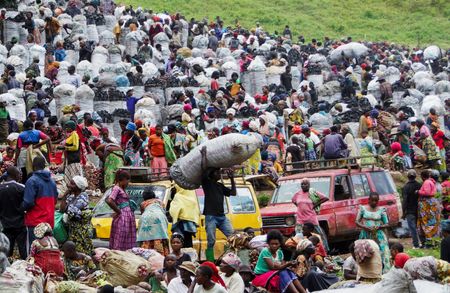DUBAI/CAIRO (Reuters) -More than 2,300 people have been diagnosed with cholera in Sudan over the past three weeks, authorities said, 90% of them in the capital and surrounding areas where drone attacks have cut off electricity and water supplies.
At least 51 people have died as a result, the health ministry’s emergency operations centre said in a statement, with cases concentrated in greater Khartoum’s Karari and Jabal Awlia localities.
The more than two-year-old war between the Sudanese army – which took full control of Khartoum state this week – and the paramilitary Rapid Support Forces has spread hunger and disease and destroyed most health facilities.
Drone attacks on power stations, fuel depots and dams have knocked out power and running water, creating conditions for the spread of cholera, dengue fever, malaria and other diseases.
“Public services, already under enormous strain, struggled to cope with the compounded challenges brought by prolonged power loss,” the United Nations said in a report on Thursday.
The Sudanese army has blamed the RSF for the majority of the attacks on facilities deep inside its territory. The RSF has not responded to requests for comment on the accusations.
Ground fighting is currently concentrated in the west of the country, in the Kordofan and Darfur regions as the army attempts to push the RSF further back.
Fighting broke out between the army and RSF in April 2023 after disagreements about the integration of the two forces during a transition to democracy.
(Reporting by Khalid Abdelaziz and Nafisa Eltahir; Editing by Andrew Heavens)








